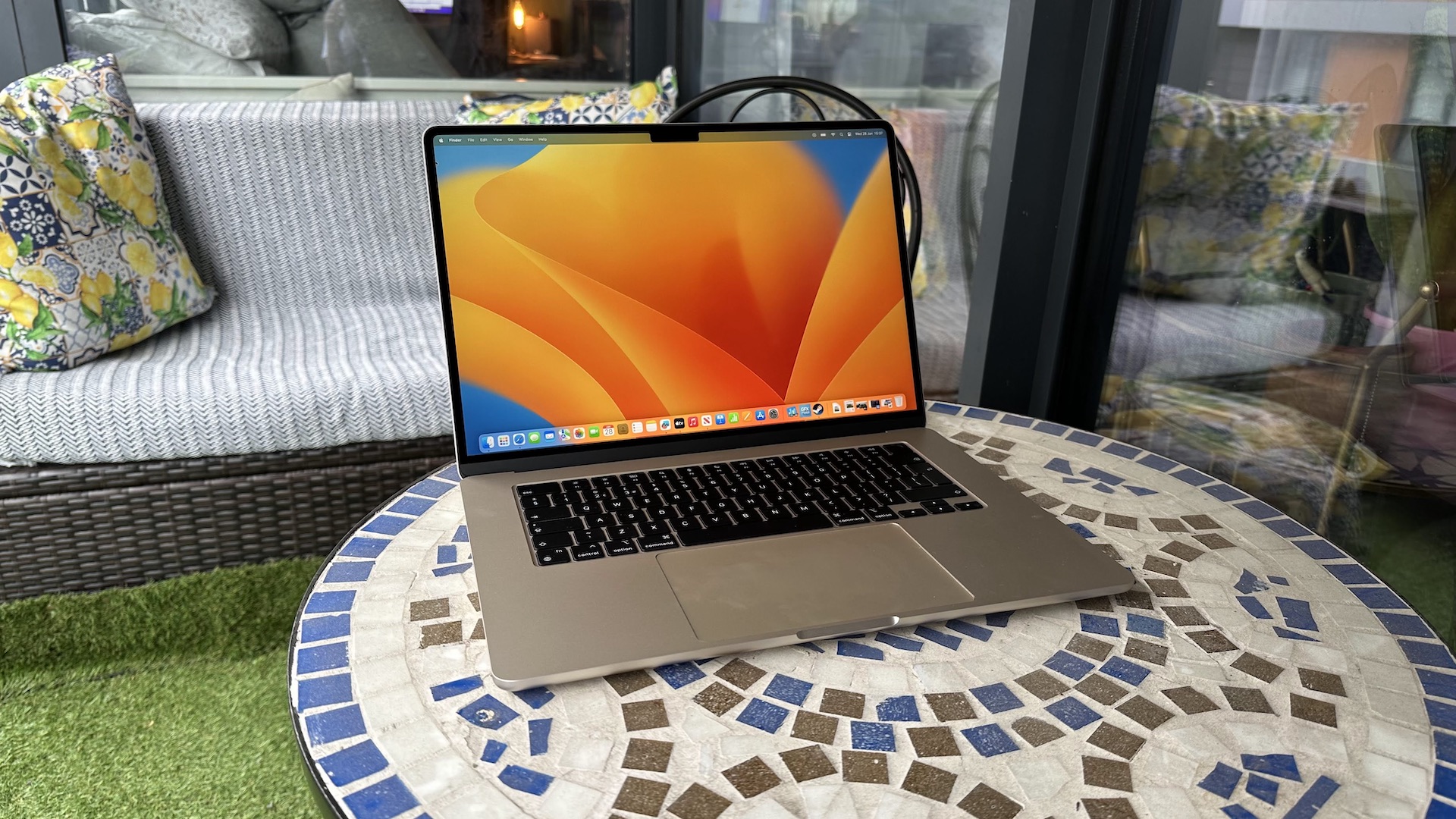Your Mac will snitch to Apple if you get it wet with macOS Sonoma installed
Don't try and pull the wool over Apple's eyes if your Mac gets wet.

iMore offers spot-on advice and guidance from our team of experts, with decades of Apple device experience to lean on. Learn more with iMore!
You are now subscribed
Your newsletter sign-up was successful
It's an unfortunate fact of life that some people will buy themselves a shiny new Mac, like the excellent 15-inch MacBook Air for example, and then almost immediately break it by pouring some sort of liquid into it. They don't do it on purpose, of course. But that's what makes it all the more tragic.
However, some of those people might be tempted to take their new Mac back to the Apple Store and claim that it simply stopped working. And they might get away with it — assuming they don't have macOS Sonoma 14.1 installed, that is.
That's because the latest version of macOS appears to have a new feature that collects information on the moisture found within a Mac's USB-C ports just ready to snitch on anyone whose computer gets wet.
Finger-pointing software
This is all according to a 9to5Mac report which notes that "macOS Sonoma 14.1 includes a new system daemon named 'liquiddetectiond,' which, as the name suggests, can identify when the computer has been exposed to liquids."
That daemon runs in the background and monitors to see whether any liquid is detected inside a USB-C port in the Mac on which it's running. It's apparently described as a “Liquid Detection and Corrosion Mitigation Daemon” which is similar to something already present in other Apple devices. The iPhone 15, taking just one example, has technology that can detect when its USB-C port is wet so as to warn the user not to plug a cable in. We've seen that in older iPhones as well — including my iPhone 13 Pro Max after making the ill-fated decision to take some underwater videos during a Spanish vacation last year. Spoiler — it didn't seem to like it and never reliably charged via Lightning again, but we digress.
In the case of the Mac, it doesn't seem that Apple intends to warn people in the same way as it does with the iPhone which means that the daemon does little more than collect information and then store it for later use. But where could it be used?
No warranty for you
The most obvious use for information on whether a Mac got wet is at an Apple Store or repair center. If a user sends a Mac back for repair claiming the infamous "it just stopped working" and the machine knows it once found itself under attack from a misplaced bottle of Pepsi, that's the kind of information Apple might want to know.
iMore offers spot-on advice and guidance from our team of experts, with decades of Apple device experience to lean on. Learn more with iMore!
I might be doing Apple a disservice here, and this information might not be used for anything of the sort. But frankly, if it isn't, it probably should be. Apple already has Liquid Contact Indicators, or LCI, inside Macs and other devices that do much the same thing. But that information is nowhere near as complete as something like this daemon could collect. Apple will know exactly which part of the Mac got wet, and more importantly, when. I also suspect it could log when it stopped detecting liquid as well.
If some people do miss out on warranty repairs they shouldn't have had, so be it. My iPhone 13 Pro Max's water damage was my own fault — although I did get some great shots of my kids, so I'd argue it was worth it — and I owned it.
Although I can imagine someone might feel differently if they have to go and buy a new Mac because they knocked their favorite beverage into it one day, completely by accident. The lesson of the story? Don't keep liquids near your Mac.
Do as I say, not as I do!
More from iMore

Oliver Haslam has written about Apple and the wider technology business for more than a decade with bylines on How-To Geek, PC Mag, iDownloadBlog, and many more. He has also been published in print for Macworld, including cover stories. At iMore, Oliver is involved in daily news coverage and, not being short of opinions, has been known to 'explain' those thoughts in more detail, too.
Having grown up using PCs and spending far too much money on graphics card and flashy RAM, Oliver switched to the Mac with a G5 iMac and hasn't looked back. Since then he's seen the growth of the smartphone world, backed by iPhone, and new product categories come and go. Current expertise includes iOS, macOS, streaming services, and pretty much anything that has a battery or plugs into a wall. Oliver also covers mobile gaming for iMore, with Apple Arcade a particular focus. He's been gaming since the Atari 2600 days and still struggles to comprehend the fact he can play console quality titles on his pocket computer.
